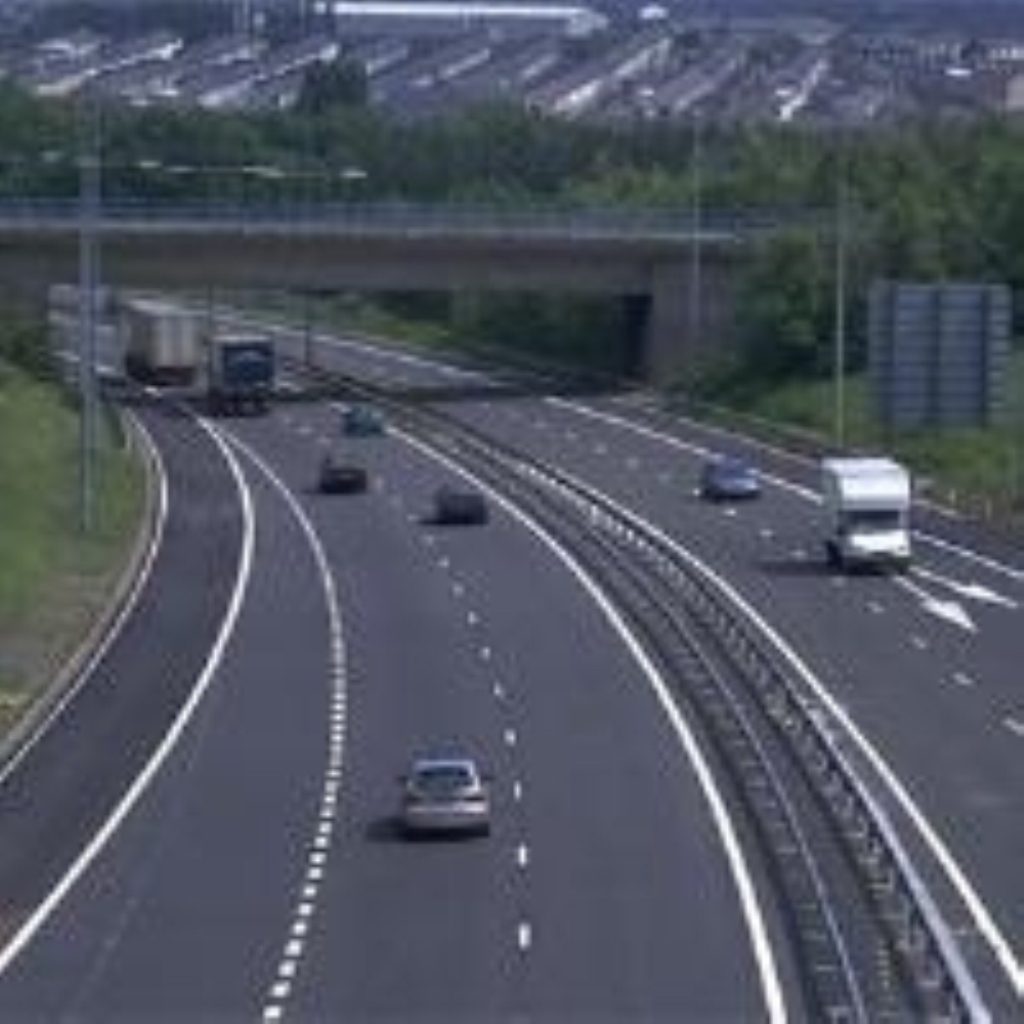Darling: Road-charging needed to avoid gridlock
Transport Secretary Alistair Darling said today that Britain would face American-style gridlock within decades if it did not start charging drivers for each mile they travel.
Other measures – such as car pool lanes and traffic management systems – would not be enough to turn the tide of increasing congestion without the help of a road-pricing scheme, he said.
Speaking to the Social Market Foundation, Mr Darling admitted there were “big questions” about how such a scheme would work and that public support for it must increase before it could become reality.
But the increasing pressure on British roads projected over the next 20 or 30 years meant the nation’s future prosperity depended on immediate action, he insisted.


“For those who would immediately balk at such a radical change as road pricing, think about the alternative. The prospect of a system becoming slowly but surely gridlocked, like you can see in many American cities every day of the year.
“What is certain is that the problem of congestion is going to get worse. Doing nothing is not an option. And the prize – giving motorists more choice and making journey times more reliable – is surely a prize worth having.”
The Government was trying to reduce congestion through a range of measures, but “the trends are against us”, he said. “That is why we need to see what more we can do.”
It would have to determine exactly what kind of road pricing could be introduced, how the technology would work, and how privacy would be protected.
Satellite tracking technology was already being used by insurance companies to provide tailored premiums and in cars for GPS navigation, and the Government would look at whether it could be adapted.
The Transport Secretary admitted that introducing such a scheme would be a “massive and complex task”. It would not happen “all in one go”, and there would be pilots carried out as well as £200 million in funding for local traffic management schemes that would include road-pricing.
Motoring groups have already raised concerns over the new proposals, which would replace road tax and fuel duty, claiming that it would be unworkable.
However, a MORI poll suggests that only 16 per cent of motorists would refuse to have the tracking device fitted to their vehicle.
The survey also concluded that 34 per cent are opposed to the introduction of charges for driving on congested roads at peak times, compared to 47 per cent who are in favour of the scheme.
Edmund King, executive director of the RAC Foundation said that road pricing would not be an easy option, but it could work – in conjunction with better roads, public transport and a reduction in fuel duty.
Mr King said: “Whilst 47 per cent of people supporting the principle of a road pricing scheme is encouraging, the Government now needs to make sure they come up with a proposal that will be acceptable to motorists.
“Motorists must be protected against excessive charges set by governments, central and local, to raise money. So charges must be fair and transparent, and overseen by an independent regulator. This is the only way to ensure trust and public acceptance of this important development.”
The Freight Transport Association said it was important that any such scheme should learn from the Lorry Road User Charging regime – due to be introduced in 2008.
Chief executive Richard Turner, said: “The issue of trust in the government is crucial and there is obvious public concern that funds generated by the scheme would be raided for other purposes as had been the case with road taxes in the past.
“Of course every Chancellor has the ability to do this anyway, but motorists will not easily give him another weapon to shoot them with. Therefore, some independent agency or board will need to be established to create this trust.”

